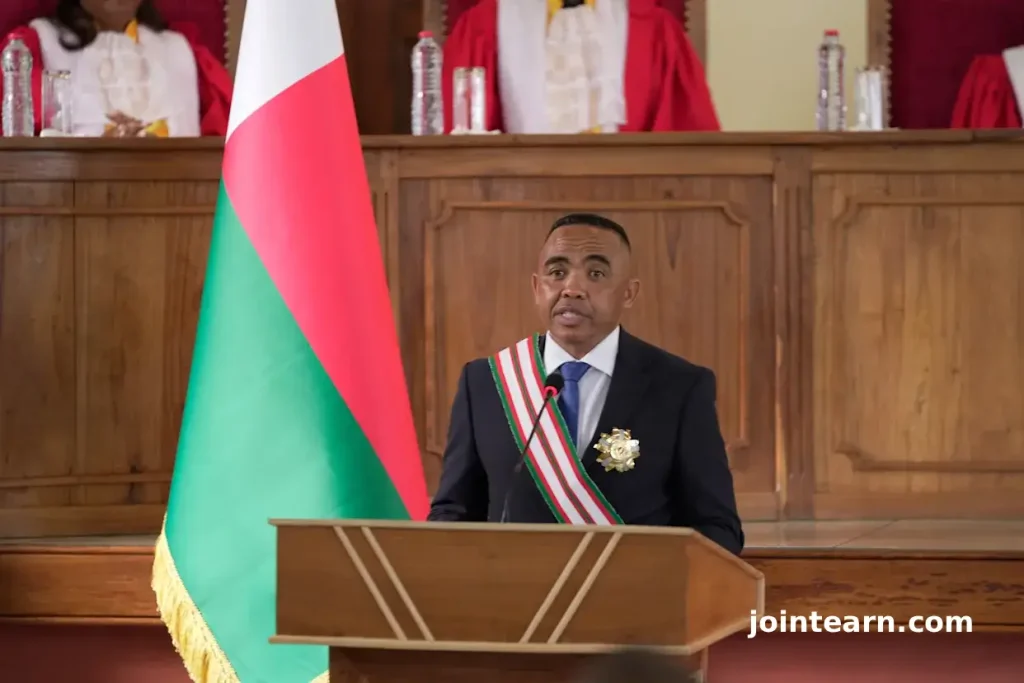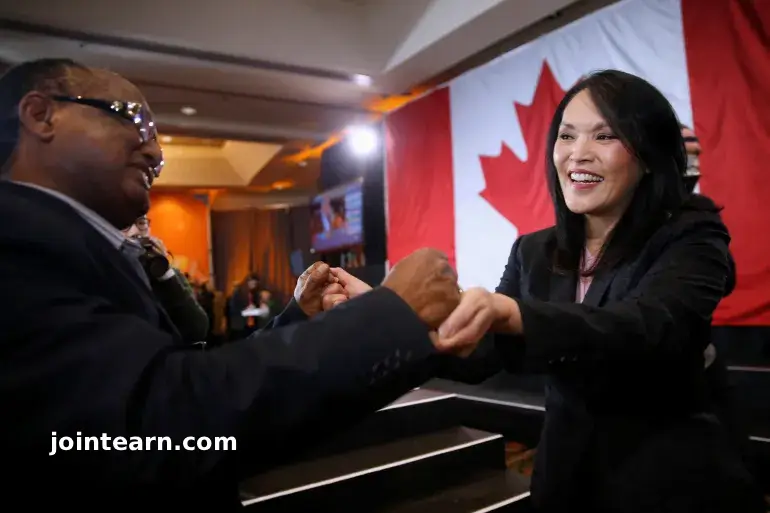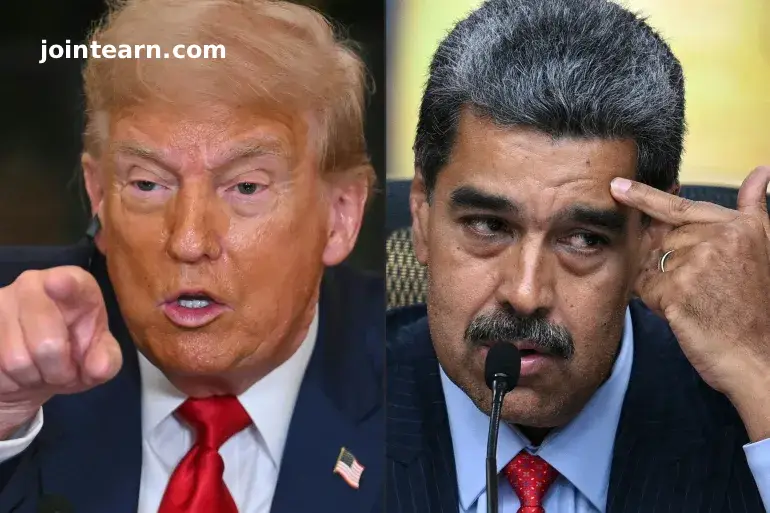
Madagascar officially swore in Colonel Michael Randrianirina as the nation’s new president on Friday, days after a military takeover that followed weeks of mass protests against former President Andry Rajoelina. The swearing-in ceremony, held at the High Constitutional Court in Antananarivo, marked the culmination of a dramatic week that reshaped the political landscape of the Indian Ocean island nation.
A New Chapter After Political Turmoil
Colonel Randrianirina, a 51-year-old army commander of the elite CAPSAT unit, assumed power after the High Constitutional Court formally endorsed his leadership. The court’s decision came just four days after Rajoelina was impeached for what lawmakers called “dereliction of duty” and abandonment of governance amid escalating unrest.
Rajoelina fled Madagascar over the weekend, reportedly boarding a French military aircraft to Reunion Island and later traveling to Dubai, according to local and international media.
In his inaugural address, President Randrianirina declared the event a “historic turning point” for the Malagasy people.
“Today marks a new chapter for our nation. United by a deep love for our homeland and the desire for genuine change, we begin a journey toward a more just, transparent, and sovereign Madagascar,” Randrianirina said.
Ceremony Attended by Global and Local Representatives
The swearing-in ceremony drew attendance from military officers, opposition politicians, representatives of the youth protest movement, and foreign delegations from the United States, European Union, Russia, and France.
Observers noted that Randrianirina appeared in civilian attire, not his military uniform — a deliberate gesture, analysts said, to convey constitutional legitimacy rather than a traditional coup image.
“He’s presenting himself as a transitional figure, not a dictator,” said Al Jazeera’s Fahmida Miller, reporting from Antananarivo. “The setting and attire were carefully chosen to signal a lawful and people-backed transition.”
Youth-Led Protests Ignite Change
The power shift follows weeks of massive demonstrations across Madagascar, driven largely by Gen Z activists frustrated over water and electricity shortages, economic hardship, and political corruption.
According to United Nations reports, at least 22 people were killed and more than 100 others injured in clashes between protesters and government forces.
Public anger reached a boiling point in early October when the CAPSAT military unit announced that it would refuse orders to fire on civilians, effectively siding with the protesters and undermining Rajoelina’s authority.
“Our youth have awakened the conscience of our nation,” Randrianirina said during his speech. “We will honor their courage by building a fairer and stronger state.”
Promises of Reform and Elections
Randrianirina outlined an ambitious transitional roadmap, pledging to hold democratic elections within 18 to 24 months. He also promised to oversee the drafting of a new constitution, reforms to electoral laws, and the establishment of an inclusive civilian government.
“Our mission is to break with the failures of the past and rebuild our political, administrative, and socioeconomic systems,” he said.
He confirmed that consultations are under way to appoint a consensus prime minister and form a national unity government that includes representatives from civil society, youth movements, and the military.
Former President Rajoelina in Exile
Rajoelina’s departure marks the third time a Malagasy leader has fled the country after being ousted.
- In 2002, President Didier Ratsiraka fled to France after post-election violence.
- In 2009, Marc Ravalomanana sought refuge in South Africa after a coup.
- Now, in 2025, Andry Rajoelina has joined the list, reportedly seeking asylum abroad.
Rajoelina’s supporters have rejected the court’s ruling as “unconstitutional”, calling it a military coup disguised as a constitutional transfer of power. His party insists he remains the legitimate president and vowed to “continue the fight for democratic order.”
Global Reactions and Calls for Democracy
The African Union (AU) and the Southern African Development Community (SADC) both announced they would send fact-finding missions to Madagascar. The AU urged for “a swift return to constitutional order”, while France’s Foreign Minister Jean-Noël Barrot called for civilian inclusion in the transitional process.
“The youth’s voice must be heard,” Barrot said during a visit to Nigeria. “Madagascar’s transition must lead to sustainable peace and democratic renewal.”
International reactions have been cautious, with the United Nations warning against prolonged military rule and urging the new government to prioritize human rights and transparent governance.
A Nation Rich in Resources, Struggling in Poverty
Despite its vast natural resources — including nickel, cobalt, and precious stones — Madagascar remains one of the world’s poorest countries. According to the World Bank, 80% of the nation’s 32 million citizens live below the poverty line.
Years of political instability, corruption, and economic mismanagement have stifled development. Analysts say the coming months will determine whether Randrianirina’s leadership brings stability or deeper division.
“Madagascar’s crisis isn’t just political — it’s social and economic,” said African political analyst Jean-Paul Rakotoarisoa. “The new government must deliver results quickly to maintain public support.”
Historical Context: A Cycle of Coups
The 2025 takeover marks Madagascar’s third military-led transition since gaining independence from France in 1960. Previous coups occurred in 1972 and 2009, both of which led to years of economic sanctions and political isolation.
Experts warn that without genuine democratic reform, the country risks repeating its past cycles of upheaval.
Outlook: Between Hope and Uncertainty
Colonel Randrianirina’s rise to power is seen by some as a symbol of renewal — and by others as a potential step backward into military dominance. His next moves, particularly regarding elections and civilian governance, will shape Madagascar’s international legitimacy and domestic stability.
For now, the Malagasy people remain cautiously hopeful. As one protest leader said outside the court:
“We fought for change, not another ruler. The people will be watching.”


Leave a Reply